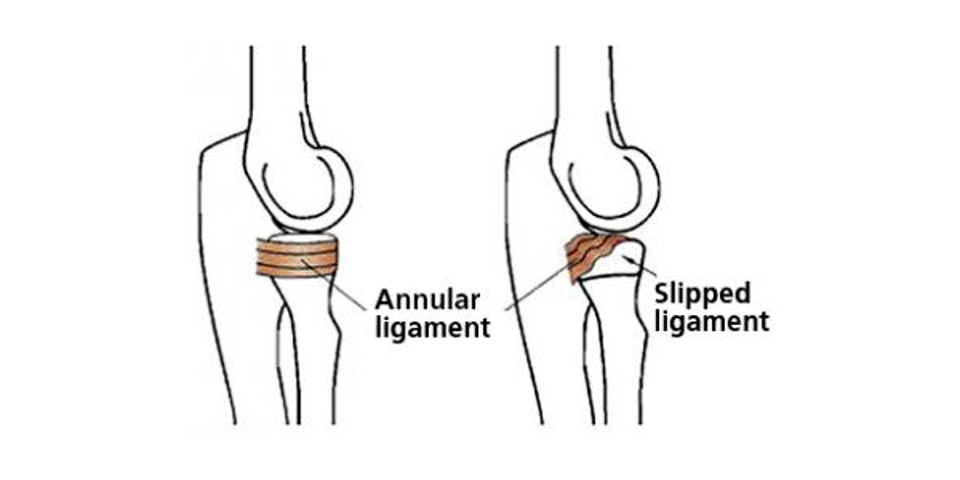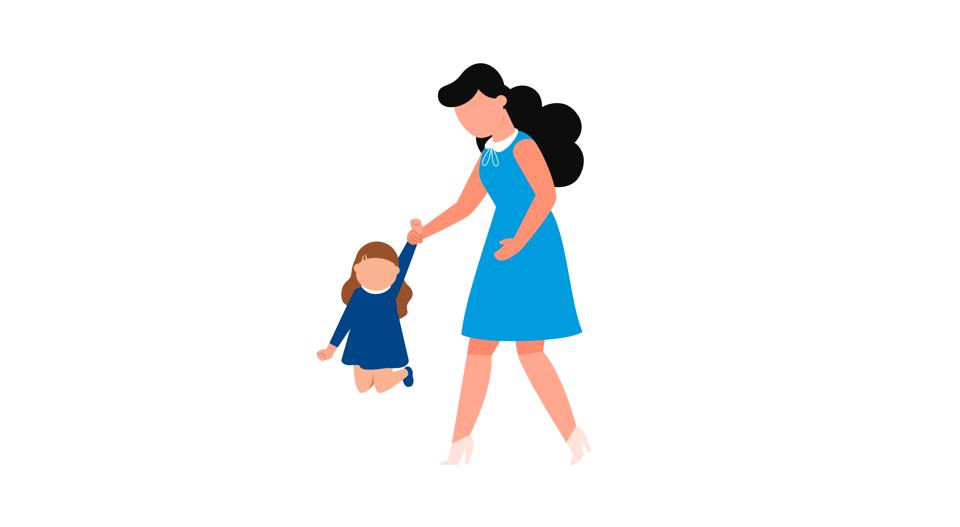Introduction
A ‘pulled elbow’ injury is a common minor injury affecting the elbows of children under the age of 6 years.
What is a pulled elbow?
A pulled elbow injury is where one of the bones that makes up the elbow (radial head) slips out of a ligament (see diagram). This is not a dislocation. This happens because the child's joints have not completed development, and the ligament is looser at this age.

What causes a pulled elbow?
Usually, the arm is pulled accidentally or stretched. Examples include:
- You and your child moving in opposite directions quickly whilst holding hands
- Lifting your child by one hand
- Pulling an arm through a sleeve whilst dressing
- Sometimes it may occur following a fall, or there is no recollection of injury.

Symptoms
Following an incident, your child may display the following features:
- Usually, the child is not distressed
- Reluctant to use the arm
- Will hold the arm by their side
- The child may report hearing a pop
How is it diagnosed?
For most cases, no x-ray is required as the history is clear-cut.
When there is doubt, an x-ray will be taken.
How is it treated?
The treating clinician will perform a short, gentle manoeuvre (bend the elbow and turn the wrist). A pop may be felt or heard, and your child may begin to cry. This is not due to pain but due to the sensation something has suddenly changed. Shortly after this, your child will be able to use their arm normally, especially if they are distracted by playing with a toy. The longer the elbow has been out of place, the longer it takes to recover fully.
If the manoeuvre is unsuccessful, your child will be given a sling and asked to return to the department within 48 hours for review. During this time, many cases resolve without intervention. Should this occur, please phone the department to inform us your child is using their elbow normally.
Complications
A pulled elbow may occur again up to the age of 7 to 8 years. Thereafter, the bones in the elbow mature so that it no longer slips out of the ligament. A pulled elbow will not cause any long-term damage to your child.
Prevention
To prevent this from happening, it is best to avoid pulling/lifting your child up from their wrists or hands.
Pain relief and comfort
For the first week, give your child appropriate doses of regular simple painkillers such as Paracetamol and/or Ibuprofen (if allergic/intolerant, inform the treating health professional). These medicines can be purchased over the counter or obtained from a high street pharmacy using the Minor Ailments Service.
Worries or concerns
Should you have any worries or concerns following discharge from the hospital, please contact the virtual fracture clinic on 01592 643355 extension 20140 and leave a message. A member of the VFC team will contact you. For urgent problems call 01592 643355 Extension 22685 or concerns out with working hours, please get in touch with NHS 24 on 111.
Accessible formats
If you require this information in a community language or alternative format such as Braille, audio, large print, BSL, or Easy Read, please contact the Equality and Human Rights Team at: email: fife.EqualityandHumanRights@nhs.scot or phone 01592 729130. For people with a hearing or verbal impairment you can also contact the team through the NHS Fife SMS text service number on 07805800005.




